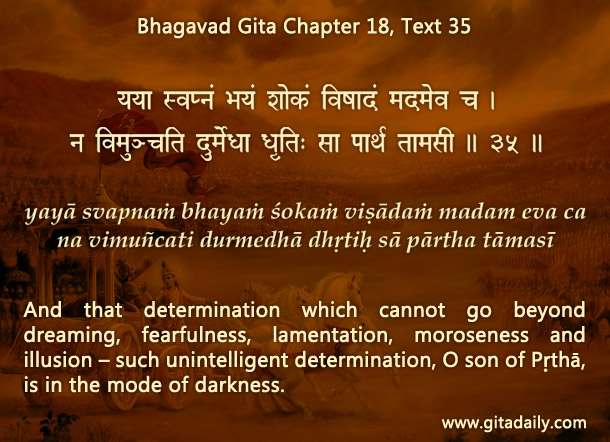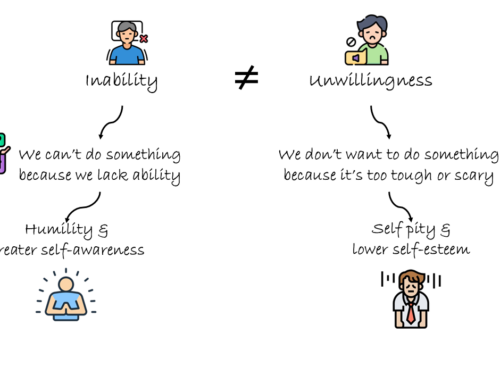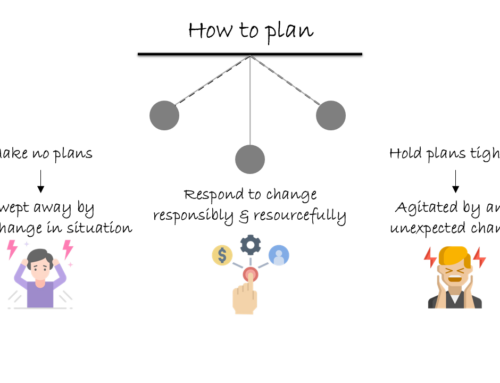We all can and should learn from the past. By reviewing what we did, we can analyze what we did right and what we could have done better, thereby learning from life.
But not all thinking about the past leads to learning. If while looking back, we dolefully obsess over things that went wrong, things that others did wrong or even things that we ourselves did wrong, then such thinking only makes us feel negative, despondent and helpless.
What determines whether we learn or lament? It is determined primarily by who is in control: we or our mind. Are we in control of our mind, guiding it purposefully to review and learn? Or is the mind in control, goading us to pointlessly wallow in self-pity or self-flagellation, without letting our thoughts move towards any constructive conclusions? The Bhagavad-gita (18.35) indicates that when we hold on to morose thought-patterns that hurt us without doing us any good, such self-defeating mental obstinacy characterizes the mode of ignorance.
To avoid succumbing to lamentation while thinking about the past, we need to first situate ourselves in the mode of goodness. The best way to rise to goodness and beyond to transcendence is practicing bhakti-yoga diligently. Such practice helps us experience both our own spiritual essence and the transcendental shelter of Krishna. Thus, we become rooted in a higher spiritual reality beyond the ups and downs that characterize the material level of reality.
When we are spiritually rooted, we can think about the past without feeing threatened by whatever went wrong or even what we did wrong. Knowing that Krishna always loves us, we get the inner security to think about the past purposefully and productively. Such thinking helps us learn from our backward looks and make our forward steps wiser.
To know more about this verse, please click on the image
Explanation of article:

Podcast:






Thanks a lot prabhu. Very true for me. Hare Krishna.
The hurdles and failure in pursuit of learning paves the way for lamentation inlife
Prabhuji…your words are so true in my life. I am new and have been constantly visiting your website for the past few days. it helps me boost my morale and makes me more inquisitive about Krishna consciousness. Hare Krishna.